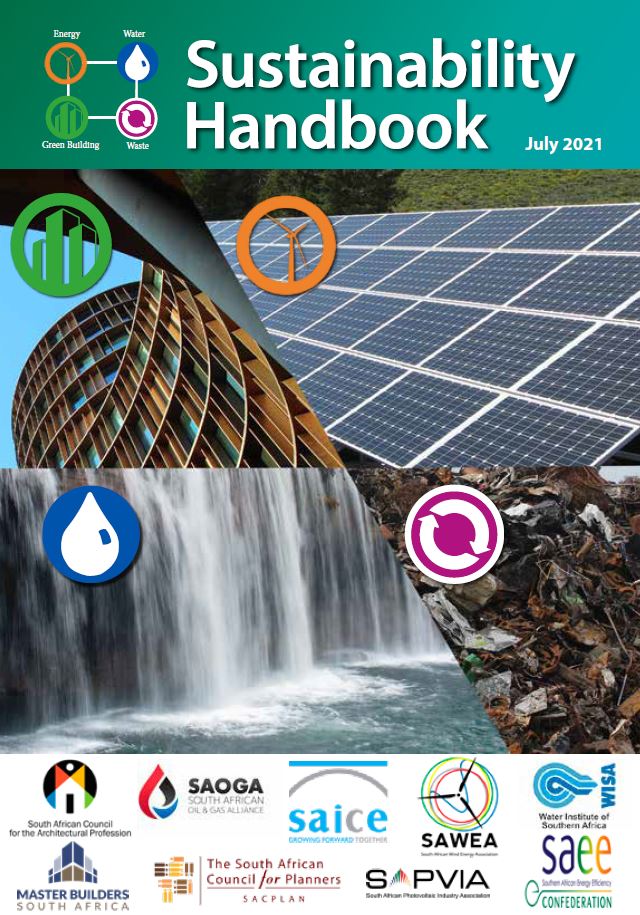Sustainability Handbook Vol 2

01 July 2021
Peta de Jager
English
uKESA Librarian, uKESA Librarian 2
Guide/ Handbook
Council for Scientific and Industrial Research
Africa
This second Sustainability Handbook sees the world still in the grip of the Coronavirus. Uncertainty in South Africa continued during the third wave, the lingering lockdown and the promise of widely accessible vaccines. Decisive cultural shifts have rendered working and studying from home first necessary, then acceptable, and finally, in some respects, desirable. The pressure for government and its entities to provide services, already challenged, has intensified under State of Disaster reprioritisation and mobility restrictions.
These dynamics, coupled with changing economic conditions and circumstances, have interesting implications for the design, engineering and transformation of space, place and fit-out, both in the immediate and long-term. Strengthened online markets and redefined distribution networks, as well as ICT infrastructure, platforms, content for working, teaching and learning, previously nascent, are becoming ubiquitous.
The role of home has been redefined. So, too, has that of commercial and work space. Physical office, retail and business space – including some recently converted – lie fallow. Large logistic warehouses continue to be constructed: economic transitions rendered visible. This natural and unwanted experiment may have restructured possibilities in the public imagination. Extensive investments have been made in modifying infrastructure to fit new purposes and stressors. Widespread changes individuals and organisations have made to adapt to new modes of interacting and functioning may have been temporary at the outset, but have surely led to enduring and transformative change.
This handbook contains a rich variety of contributions, reflecting this multitude of concerns. The issue of resource planning and management is raised in two chapters on water futures. Energy is discussed in terms of what nuclear energy may have to offer, based on Nigerian experiences as well as sharing procurement lessons learned in the journey that the Council for Scientific and Industrial Research (CSIR) is taking to make an energy autonomous campus in its Pretoria operations.
It reflects some of the interesting research interests which are currently being interrogated by the future leaders. The handbook provides the opportunity to share and challenge these endeavours as they are being crafted. The format has been well received as it provides a multi-disciplinary platform, as well as rapid turn-around times and open-source publishing.
This is Volume 2 of a growing collection.
Abstract based on source.


Comments